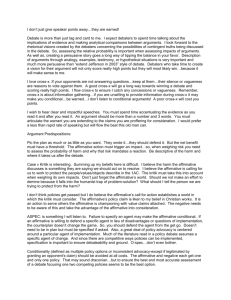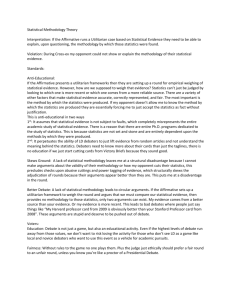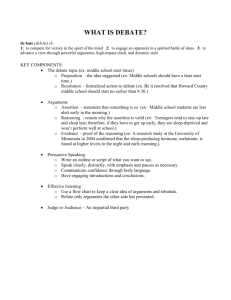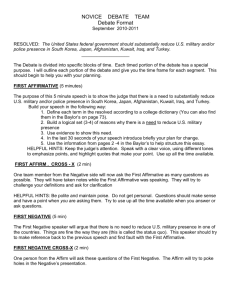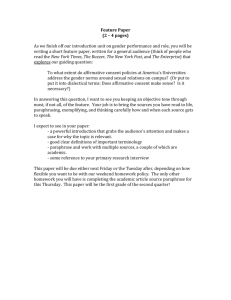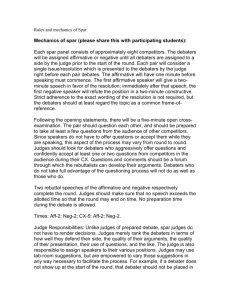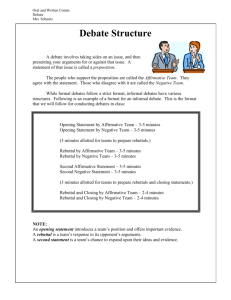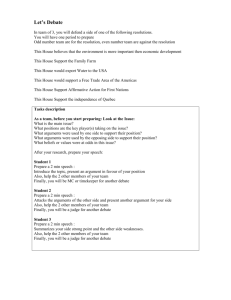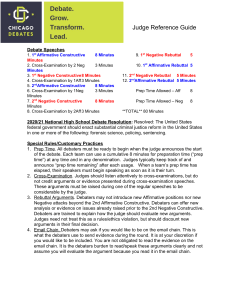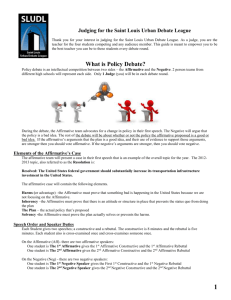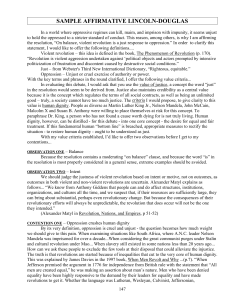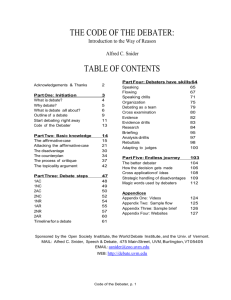NFL Events - Saint Louis Urban Debate League
advertisement
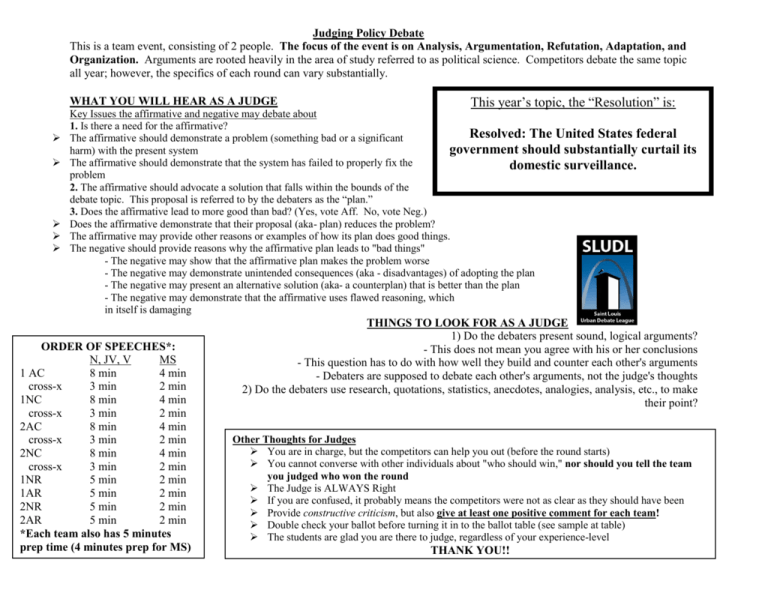
Judging Policy Debate This is a team event, consisting of 2 people. The focus of the event is on Analysis, Argumentation, Refutation, Adaptation, and Organization. Arguments are rooted heavily in the area of study referred to as political science. Competitors debate the same topic all year; however, the specifics of each round can vary substantially. This year’s topic, the “Resolution” is: WHAT YOU WILL HEAR AS A JUDGE Key Issues the affirmative and negative may debate about 1. Is there a need for the affirmative? Resolved: The United States federal The affirmative should demonstrate a problem (something bad or a significant government should substantially curtail harm) with the present system The affirmative should demonstrate that the system has failed to properly fix the domestic surveillance. problem 2. The affirmative should advocate a solution that falls within the bounds of the debate topic. This proposal is referred to by the debaters as the “plan.” 3. Does the affirmative lead to more good than bad? (Yes, vote Aff. No, vote Neg.) Does the affirmative demonstrate that their proposal (aka- plan) reduces the problem? The affirmative may provide other reasons or examples of how its plan does good things. The negative should provide reasons why the affirmative plan leads to "bad things" - The negative may show that the affirmative plan makes the problem worse - The negative may demonstrate unintended consequences (aka - disadvantages) of adopting the plan - The negative may present an alternative solution (aka- a counterplan) that is better than the plan - The negative may demonstrate that the affirmative uses flawed reasoning, which in itself is damaging ORDER OF SPEECHES*: N, JV, V MS 1 AC 8 min 4 min cross-x 3 min 2 min 1NC 8 min 4 min cross-x 3 min 2 min 2AC 8 min 4 min cross-x 3 min 2 min 2NC 8 min 4 min cross-x 3 min 2 min 1NR 5 min 2 min 1AR 5 min 2 min 2NR 5 min 2 min 2AR 5 min 2 min *Each team also has 5 minutes prep time (4 minutes prep for MS) its THINGS TO LOOK FOR AS A JUDGE 1) Do the debaters present sound, logical arguments? - This does not mean you agree with his or her conclusions - This question has to do with how well they build and counter each other's arguments - Debaters are supposed to debate each other's arguments, not the judge's thoughts 2) Do the debaters use research, quotations, statistics, anecdotes, analogies, analysis, etc., to make their point? Other Thoughts for Judges You are in charge, but the competitors can help you out (before the round starts) You cannot converse with other individuals about "who should win," nor should you tell the team you judged who won the round The Judge is ALWAYS Right If you are confused, it probably means the competitors were not as clear as they should have been Provide constructive criticism, but also give at least one positive comment for each team! Double check your ballot before turning it in to the ballot table (see sample at table) The students are glad you are there to judge, regardless of your experience-level 1 THANK YOU!!
